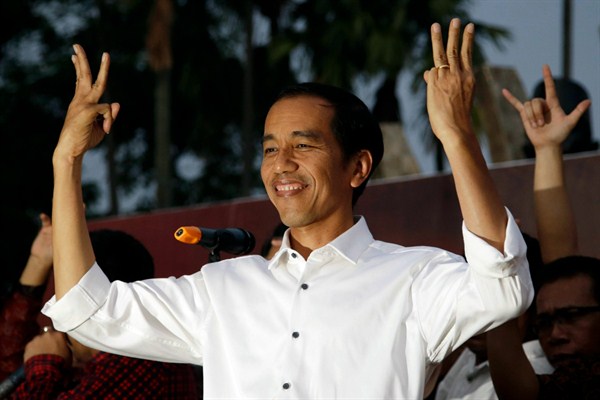On July 22, the Indonesian Election Commission declared that Jakarta Gov. Joko “Jokowi” Widodo had won the country’s presidential election. Even if the result is challenged in court, the margin of victory is wide enough for most to assume that Indonesia—the world’s fourth-largest nation, third-largest democracy and largest Muslim-majority country—will inaugurate Jokowi as its seventh president on Oct. 20 after a decade of stable leadership under outgoing President Susilo Bambang Yudhoyono.
Jokowi’s victory is nothing short of historic. By choosing a 53-year-old former furniture exporter over Prabowo Subianto, a former general and son-in-law of late dictator Suharto, Indonesians have elected their first-ever president from outside the Jakarta elite to clean up the country’s corrupt politics and institute fundamental change. Jokowi’s ability to deliver on all that, however, remains to be seen. Yudhoyono has left a number of significant problems unaddressed for his successor, and Jokowi himself could face a host of challenges as he tries to balance instituting reforms at home and maintaining Indonesia’s active role abroad.
When Jokowi takes office in October, he will inherit a mixed legacy from his predecessor. On the one hand, since coming to power in 2005, Yudhoyono has ushered in a period of extraordinary political stability and respectable economic growth, a far cry from the fears of impending Balkanization that gripped the country following the Asian financial crisis of 1997 and the overthrow of Suharto. That has given Indonesia both the capabilities and confidence to recapture its role as a regional leader in Southeast Asia and emerge as a global middle power in organizations like the G-20 and on issues such as climate change.

